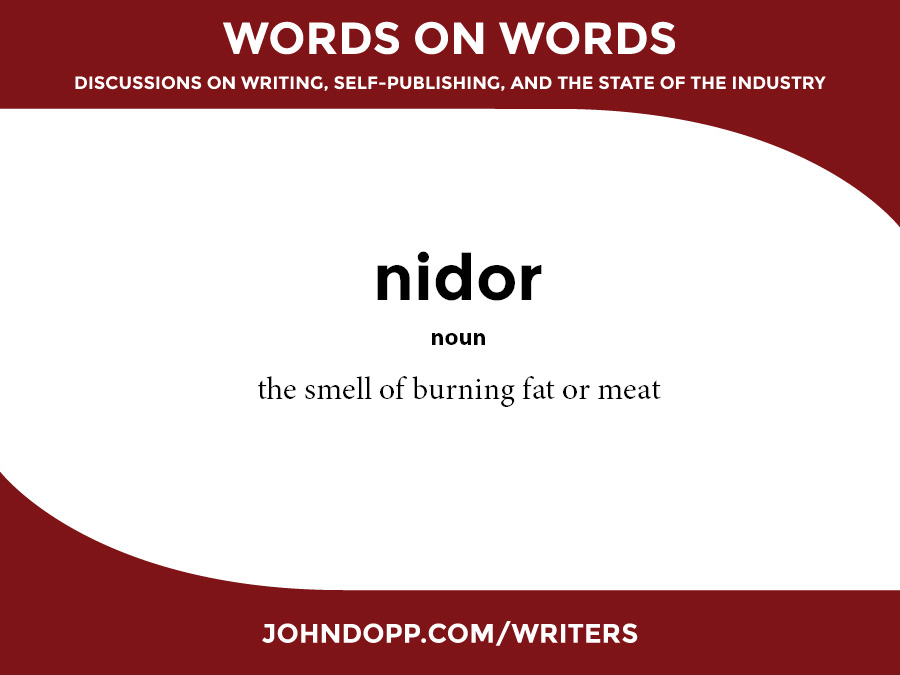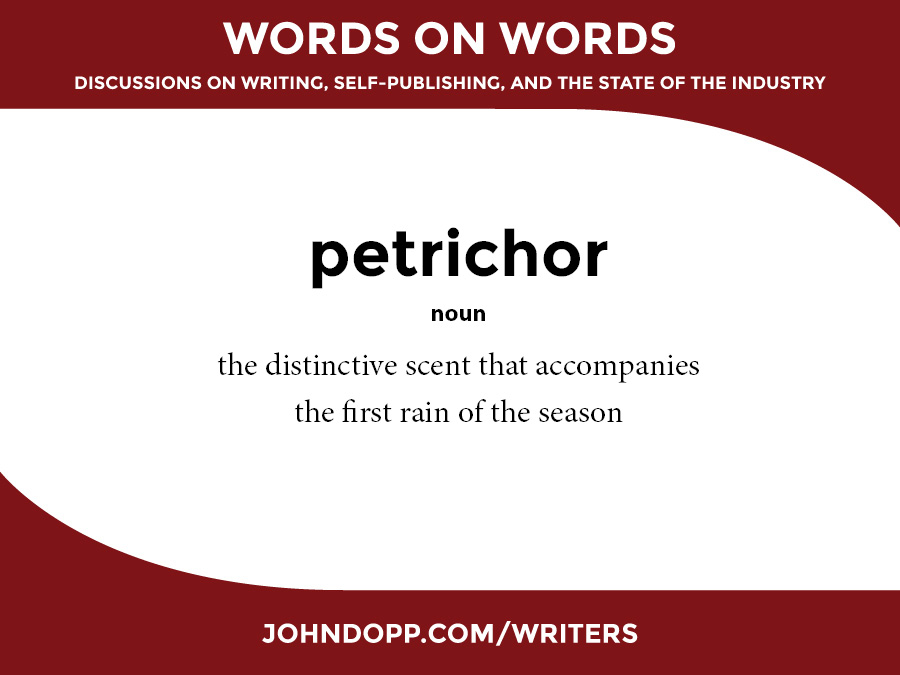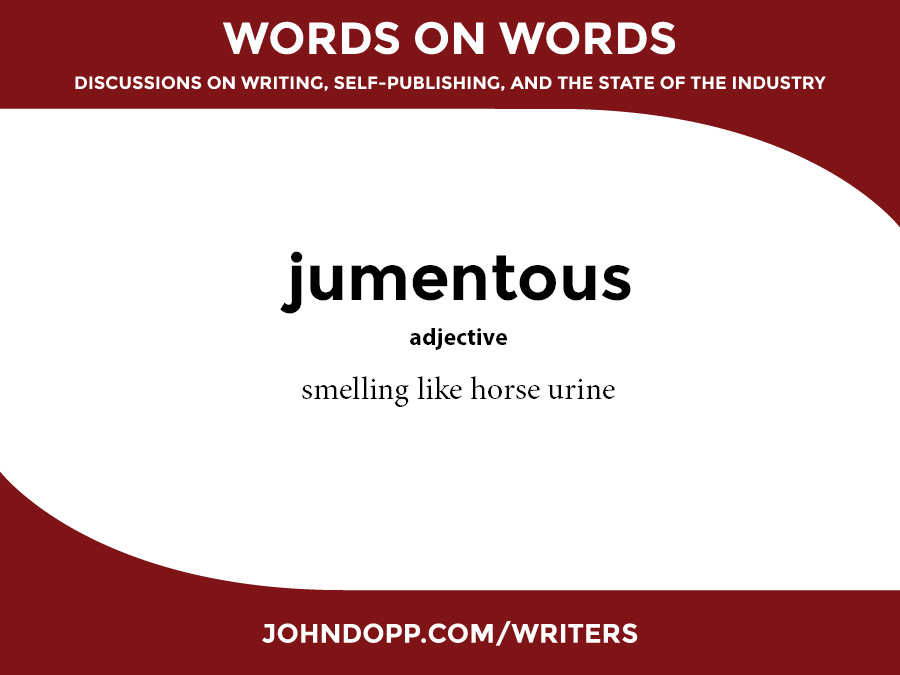Sniff. Sniff. Do you smell that?
Considering the amazing variety of scents in the world, there’s a surprising dearth of words to describe them. Perhaps that’s due to our relatively weak sense of smell. If dogs could speak, would they add to that vocabulary so they could discuss those myriad fragrances?
These are the things that keep me awake at night.
Despite our pathetically dull sniffers, we’ve managed to attach labels to some of the more distinctive aromas. Here are three words for scents you might not know the names of.
If your Thanksgiving dinner was a bit overcooked, you might have smelled nidor, the stench of burning meat. The word is related to the Greek word knisa, the smell of a burnt sacrifice.
Petrichor is a relatively recent addition to our language. It was coined in 1964 by Isabel Joy Bear and Richard Thomas in their article, “The Nature of Argillaceous Odour”, published in Nature. (For those of us who aren’t geologists, argillaceous means “pertaining to clay”.) Petrichor describes the unique and enticing scent of freshly fallen rain, or more technically, the compounds in the soil that are released by it.
By far, the most unusual description in this week’s lineup is jumentous, smelling of horse urine. Yes, folks, it’s pungent enough to deserve its own label. Jumentous comes from the word jument, an English word meaning “beast”, which comes from the Latin jungere, “to join”. Jungere is also the origin of the word yoke, the device used to collar two animals together to pull a plow.
Join us next week for more risible sesquipedalians!


